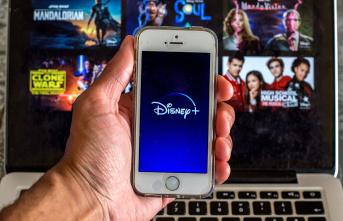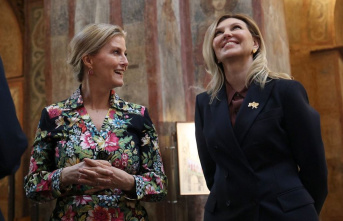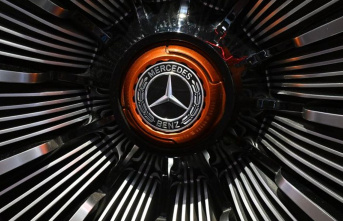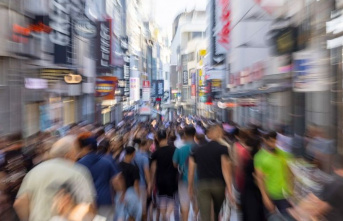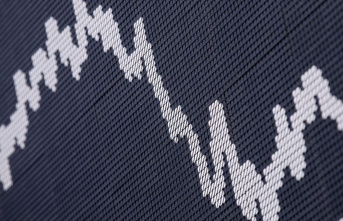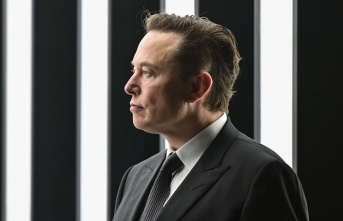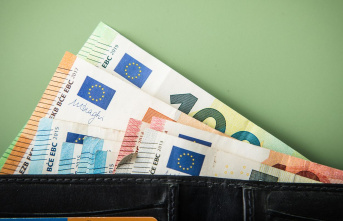Pessimists are more likely to be right than the optimists. trade group estimates that 25% of all items we recycle end up in landfills.
This is especially true for plastic packaging. The U.S. produces more plastic waste than any other country but has not created the same well-functioning recycling system that other countries enjoy. According to the Environmental Protection Agency's most recent data, only 30% of the rigid bottles and jugs which can be recycled in the United States are successful recycled.
10 Earth Day facts to surprise you
5 ways to make your home more Earth-friendly
What happened to acid rains? How the environmental movement won - and could again
The way we buy and make clothes is a problem for the planet. Here's how to fix it.
"How is it possible that we can put a man and a woman on Mars, but we don't know how recycle properly?" Mitch Hedlund is the executive director of Recycle Across America.
There are some tricky issues to resolve before packaging waste can safely be recycled in this country. Plastic has a long lifespan -- approximately 400 year -- and scientists have discovered that what we throw away has a way to come back to us. Plastic ends up in landfills, polluting the oceans. Microplastics can also find their way into our bodies and water supplies. Studies suggest that we use about one credit card's amount of plastic each week.
Disposal can often be cheaper
Many Americans live in areas without curbside recycling options. There are a few recycling services available across the country. China paid an estimated 70% for the plastics recycledin the U.S. half a century ago. However, they stopped importing large amounts of recycling from the rest of the world at the start of 2018. hundreds upon cities couldn't afford to sort and collect the plastic after China's demand collapsed. CBS News reported that Fort Worth, Texas saw a drop in recycling revenue of $1 million before China's import ban and suffered losses of over $1 million thereafter.
Although domestic remanufacturers have increased in number to meet demand for used plastics, supply has not been sufficient. According to Sarah Nichols (sustainable director at the Natural Resources Council of Maine), states like Maine and Oregon are adopting the policies of Canada and the European Union to make recycling more affordable. Maine was the first state to pass a law in 2021 that requires packaging manufacturers to pay for recycling their plastic bottles. This law should be in effect by the end of this decade.
Nichols stated that when this happens, recycling funding is available. This is why recycling isn't working, because it's more expensive to dispose of.
Nichols stated that she is currently working with other states in order to make the new trend a wave. Some states, like Colorado, are currently considering adopting extended producer responsibility policies.
Recycling symbols may be confusing
A packaging company paid a college student who won a design contest a few thousand dollars to get the chasing-arrow symbol that is now found on all packages. It has become the symbol of national recycling for consumers. Experts say that the chasing-arrow icon does not guarantee that the package will be recyclable in your region.
Containers that can do the chasing-arrow symbol will be found. The material cannot be recycled at the curbside. It is not recyclable anywhere," stated Dereth Glance of New York, deputy commissioner for Environmental Remediation and Materials Management.
Hedlund advocates legislation to standardize recycling bin labels.
Hedlund stated that the packaging industry makes it seem like they have control over how plastics are recycled. However, plastics you get today, and most plastics in general, are not recyclable in the U.S.
According to Hedlund, most consumers shouldn't throw out rigid plastic containers #1 and #2 in their recycling bins. These include clear plastic containers such as Coca-Cola bottles and opaque containers such as milk jugs or shampoo bottles.
Hedlund recommends that you throw away any plastic waste that is not clear. However, anyone who is willing to do some research can find out the complete list of plastics that can be recycled in their area by contacting their local department or public works.
Recycled plastic would be cheaper and more affordable than virgin plastic if American consumers were to only save what is accepted in their region.
"We all have learned to drive correctly once in our lives. We all can look at standard road signs and know what to do. Hedlund stated that recycling is possible.
The Sorting Equipment isn't up-to-snuff
According to the EPA most material recovery facilities in use today were built in the 1990s. However, our waste stream has changed significantly since then.
Nena Shaw, acting Director of EPA's Resource Conservation and Sustainability Division, stated that "rapid innovation in plastics and packing has resulted in new materials that continue to pose challenges for current recycling infrastructure."
It's easy to get gummed up by the flimsier plastic you use to seal a tray full of leftovers or that manufacturers use for packaging paper towels. According to Glance, it's a constant headache and headache for material sorters.
It will stop recycling. It jams up the machines. It doesn't work," Glance stated.
While wish-cycling can have serious consequences in most cases, it is possible to take plastic bags to some grocery stores and get them recycled into something else, such as a deck chair or other useful item.
Recycling opportunities are available in certain areas, but they don't stop at the curb.



